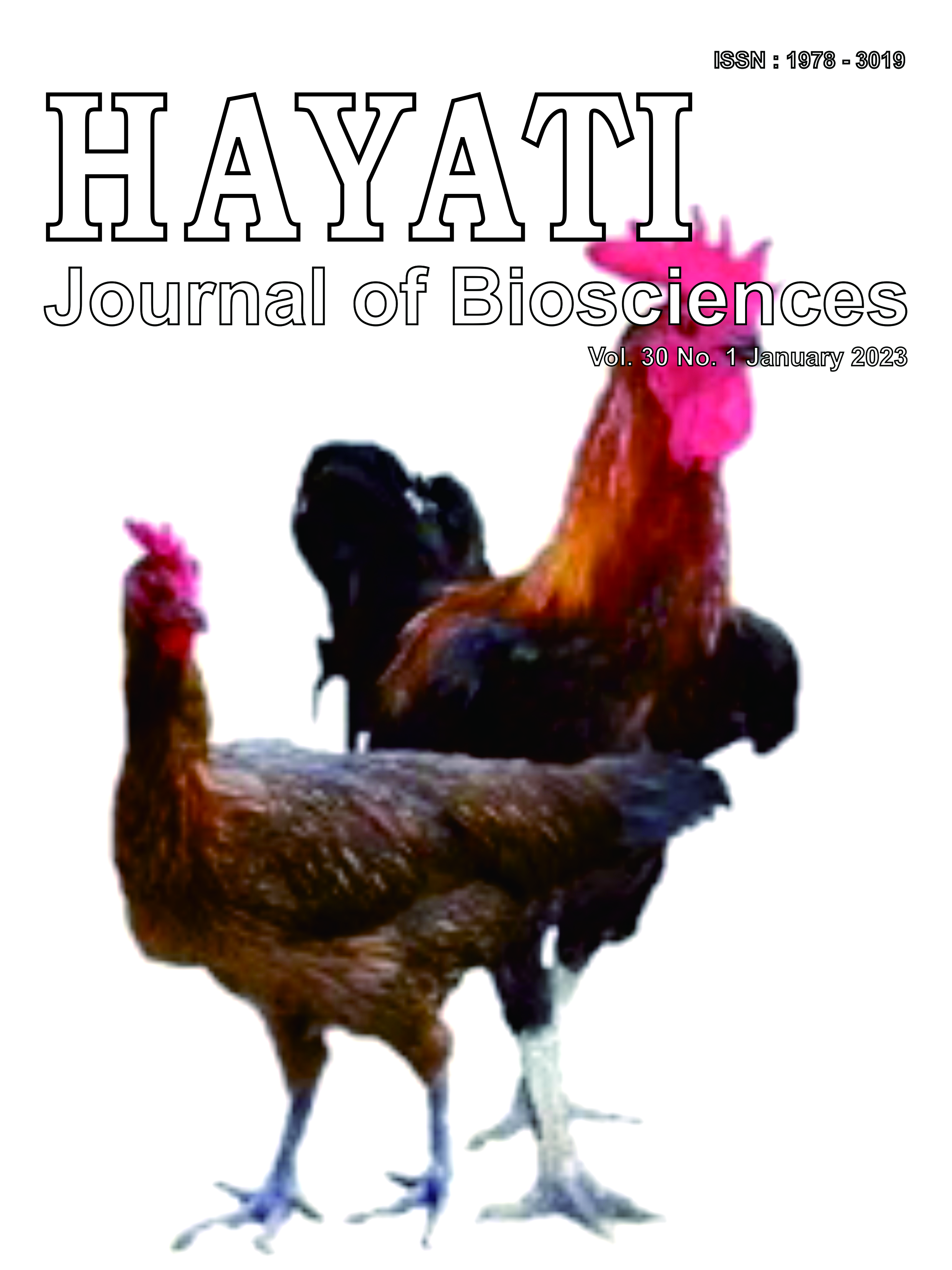In Silico Study of Anticancer Activity of Red Betel Leaves Bioactive Compounds against Colon Cancer Marker Proteins
DOI:
https://doi.org/10.4308/hjb.30.1.113-121Abstract
Colon cancer or colorectal cancer is one of the major health problems in the world. Previous research has proven that red betel leaves extract has anticancer activity against breast cancer cells. The study aimed to look at the potential of compounds contained in red betel ethyl acetate fraction as anticancer substances for colon cancer by conducting in silico tests through the docking of three colon cancer biomarker receptors against eight red betel leaves compounds. The parameters of binding affinity energy and inhibition constant used in the molecular docking analysis showed that there are several compounds that have the potential as inhibitors against colon cancer marker proteins to inhibit the development of colorectal cancer and have high bioavalibility as oral drugs. Based on in silico test it is known that the compound N-1,N-9-Bis [E-(2-nitophenyl) methylene] non anedihydrazide has the highest inhibition of human leukotriene A4 hydrolase receptor with binding affinity energy of 11.3160 Kcal/mol. The next compound is 4-({4,6-Bis[3R,5S)-3,5-diamino-1-piperydinyl]-1,3,5-traizin-2-yl}amino) benzenosulfon amide which has the highest inhibition in Chek1 with binding affinity energy of 9.7110 Kcal/mol, and the compound 4-(4-methoxy-phenylamino)-2,3-dihydro-1H-4a, 9-diaza-cyclopenta (b) fluorine-10-carbonitrile has the highest inhibition in the Bcl 2 navitoclax analog receptor with binding affinity energy of 8.4470 Kcal/mol.
Downloads
Downloads
Published
Issue
Section
License
HAYATI J Biosci is an open access journal and the article's license is CC-BY-NC. This license lets others distribute, remix, tweak, and build upon author's work, as long as they credit the original creation. Authors retain copyright and grant the journal/publisher non exclusive publishing rights with the work simultaneously licensed under a https://creativecommons.org/






















.png) Bogor Agricultural University
Bogor Agricultural University Department of Biology
Department of Biology The Indonesian Biological Society
The Indonesian Biological Society 

